In part 1 E. Stephen Burnett, Austin Gunderson, and Kerry Nietz explored the first five myths about Batman v Superman: Dawn of Justice. Now for the conclusion.
Caution: Heavy spoilers ensue.
6. Lois Lane and other supporting heroes make stupid and senseless choices.
Austin Gunderson
This complaint isnât without merit, as Lois Lane repeatedly demonstrates an astonishing disregard for her own safety. However, when you factor in her seemingly boundless and fully-justified faith in the search-and-rescue capabilities of her superpowered boyfriend, the intrepid-reporter schtick makes a whole lot more sense.
Iâve seen some people criticize the blow-by-blow sequence of events at the filmâs climax as a cluster of plot devices. But this is largely unfair, and, as with much of the MoS criticism, revelatory of a lazily privileged perspective that doesnât account for the realities of actual combat. Actual combat is messy, desperate, uncontrolled, terrifying, and confusing. It takes years of training or experience to be able to keep your cool and think logically under circumstances in which someone else is trying to kill you. Decisions made in the moment and under great duress shouldnât be nitpicked by comfortable armchair quarterbacks who know all the facts and have the advantage of hindsight.
That said, it was a genuinely stupid move for Batman to cast aside his Kryptonite spear and then leave it lying there to be disposed of by Lois Lane. Yes, he was emotionally distraught. Yes, he was likely concerned that his continued possession thereof would be taken as an act of bad faith by the god heâd just decided to spare. Yes, he didnât know that heâd need it again in a few minutes. Those justifications donât outweigh the fact that tossing it aside would allow Luthor to reacquire it, which would be bad news.
So yes, in that moment, Batman made a mistake. Inconceivable! (Actually, totally conceivable.)
Moving on from that point, the rest of it makes perfect sense. Bats & Supes first attempt to take down Doomsday by conventional means, which fail. Then the best that human technology has to offer also fails. (Let us not forget that when Supes sees the missile gaining on him, and then keeps punching Doomsday, heâs demonstrating the same self-sacrificial inclination thatâll get consummated just a little later on.) Only then does Batman realize that the spear might have a chance.
Batmanâs decision to lure Doomsday back to the spear instead of taking the spear to Doomsday has also fallen under criticism. But this is stupid. Look at the situation: youâve got a situation thatâs totally out of control, and an adversary of great speed whose motives are unknown. You can either control the adversaryâs movements by getting it to chase you, or you can just leave the battlefield and hope itâs still there when you get back. So Batman makes the prudent tactical decision. If Batman had just left and then Doomsday had plunged into the ocean and vanished, all the critics wouldâve got on Batmanâs case for letting Doomsday get away to fight another day. Thereâs just no winning with some people.
Back to Lois Lane. Why does she dispose of the Kryptonite spear? Because sheâs smart. Why does she go back for it later? Because sheâs smart. When a bunch of smart people tackle the same problem without communicating with each other, theyâre gonna run into a lot of problems. And thatâs exactly what happened during the climax of âBvS.â
Which is probably why Batman wants to organize a Justice League. So the outfielders donât smack into each other when going after the same fly ball.
E. Stephen Burnett
I would agree with all that, with the caveat that some of these apparent gaps may get filled in with the filmâs Ultimate Edition, releasing this summer. Zack Snyder recently said the original film was 3 hours long, with postproduction and effects finished. The edits came much later in production (as we saw with the deleted scene released literally the Monday after opening weekend).
But yes, all those choices do seem to make a lot more sense than nitpickers might originally suspect. How did Lois know to try the spear? Duh, because she rushed into that building and saw her invulnerable hero about to be slain by it. She knew Superman has weaknesses, given their mutual encounter with Kryptonian atmosphere in Man of Steel. The deduction is easy to make. Or thereâs a deleted scene that spells it out even more.
Anyway, itâs ultimately a silly example, given the many plot holes that occur in similar films. Batman v Superman just happens to catch it because a whole lot of people seem eager (not by conspiracy but humanity) simply want to pile on.
I would also point out that many problems like this get sharpened when people see the film a second time. How many of us have been browsing an IMDB page and seen the section marked âincorrectly regarded as goofsâ? Every movie has editing, effects, and continuity errors. But sometimes people think theyâve found the Ultimate Mistake that turns out to be their mistake. As to whether people felt the choices were reasonable, especially during combat â yes, thatâs armchair-quarterbacking in the extreme.
Iâm especially persuaded by Austinâs explanation of Batmanâs tactical decision. When youâre fighting an enemy you must determine the enemyâs motivation! If Batman had tried to leave, the creature would have simply followed him, or gone off somewhere to wreak mindless destruction.
Honestly, I think a lot of this is like the complaining about Peter Jacksonâs infamous âhigh frame rateâ experiments. HFR is not everyoneâs cup of tea. But the only reason people say itâs âunrealisticâ is because it was âdifferent.â In fact real life has a far higher âframe rateâ than 24 FPS. Weâre simply not used to seeing this in movies. So, complaining about it as âunrealisticâ makes about as much sense as complaining about sweeping helicopter shots because wide scene backgrounds are supposed to stay put like matte paintings.
Kerry Nietz
I think I have to give Batman more leeway on the spear thing. If you remember, at the moment he abandoned it, time was of the essence. He had a very specific mission, and there were literally minutes to spare. He doubtless assumed he could come clean up later ⌠and then Doomsday.
E. Stephen Burnett
P.S.: Also, why havenât we been complaining all along about all the Batarangs, Bat-grapples, Batcape pieces, Bat-blades, and even Bat-blood he leaves around? I mean, as Amanda Waller once said, his DNA ends up all over town âŚ
Kerry Nietz
True that.
E. Stephen Burnett
See also: Spider-Manâs web. All right, Iâm done âŚ
7. Lex Luthor was ridiculous, over-acted, and had no motivation for his villainy.
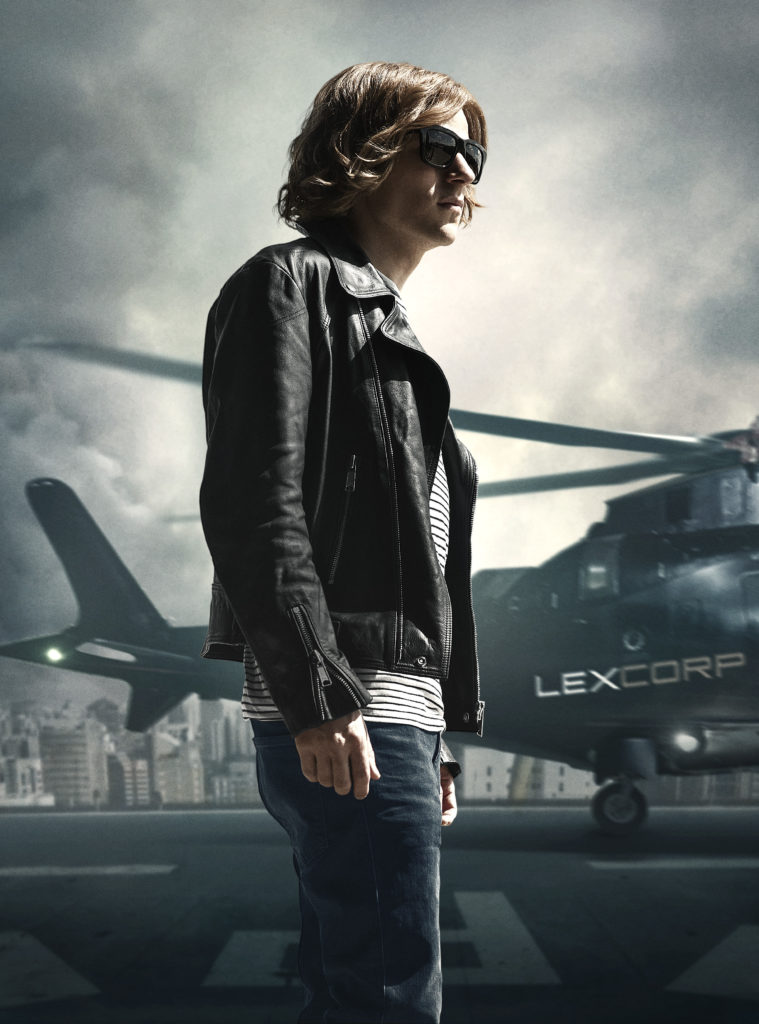
Silicon Valley sinister.
Austin Gunderson
Lex Luthor was perfect. Next!
Okay, okay, Iâll address this. First of all, yeah, those hoping for a bald old fuddy-duddy were disappointed. Instead, we get Young Lex, son of the fuddy-duddy and a villain for our time. This is his origin story; remember, heâs bald by the end. And for what heâs supposed to be and to represent, Jesse Eisenberg plays him perfectly.
Who are the billionaire CEOs of this age, the modern analogs of the Carnegies or Rockefellers? Why, those would be the Zuckerbegs, the Jobses, and the Bezoses. The young, hip titans of the Internet, with their secular chic, technocratic flair, and dreams of automating everything. These are the scary people, the people with the power. Arenât we all sick of stuffy, suited industrialists and their glossy-boardroom scheming? Hasnât that been done to death already?
Young Lex represents a compromise between the old and new: he inherited a fortune and then made the transition to an open-air collaborative studio with candy-bowls strewn about and basketball courts down the hall. He gets to simultaneously enjoy personal prestige and pedigree, and retire to a lavish gothic crypt whenever his vaguely spiritual threats require Victorian visual aids. Itâs the best (worst?) of both worlds.
As for his villainous motivation, thatâs even better. Unlike the dime-a-dozen corporatist baddies proliferating Hollywood, Lex anchors his angst in a coherent worldview. If God canât be all-powerful and all-good, as the amateur philosophers so often tell us, then it stands to reason that the apparently all-powerful Superman, who in this film stands in for God, cannot be trusted. In humiliating Supes, Lex is striking back at the sovereign God who allowed him to be humiliated, once. And in gaining leverage over the Kryptonian, Lex is asserting his own place upon Godâs throne. No self-serving deity will lord it over Luthor, oh no! Lex is in control, now. Lex is his own god.
And if you think that sounds outlandish, you should read what atheists write. I applaud Zack Snyder for taking their pronouncements at face value in such dramatic fashion.
Kerry Nietz
Yes, it is interesting here that much of Lexâs power comes from the information he has collected. This is a first for the movie Lexâs, I think. He is dangerous first because of what he knows about he heroes, not because of what he does. (The doing comes later.) This makes him a perfect villain for our times, I think, when we suspect (know) that governments and corporations are always gathering information on us, and that people and companies can be destroyed only through the wrong use of information. I also think it is interesting that this Lex makes the common argument that God cannot be all powerful and yet all good. This discounts any allowance for the free will of humans, of course. Plus, thereâs the issue of where a good God, with infinite power, should stop were He to decide to stop all evil.
Austin Gunderson
Yes, yes, the information element is key. Why does Luthor become part of the action? Because he uses the resources at his disposal to unlock the secrets of the Kryptonians. And the very first thing he does when at last he gains access is to learn everything he can about Krypton. In the end, every advantage the heroes have is something theyâve stolen from Luthor: the Kryptonite, of course, and even the knowledge of each otherâs existence, which Luthor had been collecting on his own. This reflects the strength of a Google or Facebook: gather and organize enough data and eventually youâll rule the world.
Kerry Nietz
Yes, and wouldnât it be something if it turns out that his quest for information is what unleashes an even greater evil in the movies to come?
Austin Gunderson
The conclusion seems to hint at that, what with âthe bellâ having been rung, and that delightful quip about the dark between the stars. The whole thing reminds me of the villains of That Hideous Strength and their self-deluding enthrallment to The Head. They think theyâre just manipulating nature, but in reality theyâre prostrating themselves before demonic powers.
Kinda like that one time in the Garden of Eden. The more things change, the more they stay the same.
Kerry Nietz
Did you see the deleted scene of Lex contacting some horned being?
Austin Gunderson
No, I did not!
Christian Bale Batman voice:
WHEEERE IS IT?!?
E. Stephen Burnett
Wow, how did you miss that?
Austin Gunderson
I dunno ⌠is it online?
E. Stephen Burnett
Indeed:
Note: This is clearly set after the climactic battle, but before Lexâs imprisonment (and perhaps before Supermanâs funerals).
Oh yes, this one is brimming with spiritual parallels. Just look at it.
Austin Gunderson
Holy. Crap.
E. Stephen Burnett
Thatâs actually very apt. Very apt indeed.
Weâve lost our discussion format here, temporarily, but no, keep rolling.
Fans did the research. The devil-like creature is either a general of Darkseid or else Darkseidâs father. This gets into territory I do not know, though Iâm familiar with Darkseid from the âJustice Leagueâ series (and the very end of the sadly not-renewed âYoung Justiceâ season 2!).
Kerry Nietz
Also made an appearance in the last season of âSmallville.â
E. Stephen Burnett
More about Lex: I have a new habit of arguing with people on the internet who are wrong about this movie and âMan of Steel.â In particular, they do not (or cannot) understand this sort of villainy, either for General Zod or now Lex Luthor. I dislike story snobbery of all sorts. Yet I canât help but think these evil motives simply fly over peopleâs headsâas opposed to, say, âspoiled younger brotherâ a la Loki.
For instance, one internet chap said Luthor had no motivation and made no sense. I asked if he heard Luthorâs monologue on the roof. (Superman is a sly dog who can get villains monologuing!) This critical viewerâs reply? Well, he had stopped listening at that point because the dialogue was so âover the top.â Fine, thatâs a valid (yet subjective) opinion, but it doesnât justify any objective judgment of âLuthorâs motivations made no sense!â They make perfect sense. But you canât expect the story to spoon-feed it to you, especially if you close your mouth.
All three of us seem to recognize: Luthorâs motives made perfect sense. But maybe itâs because of bad doctrine â humans arenât that bad? â that we are not willing to accept that kind of villainy. People had trouble with The Joker too. I recall even Christian writers saying The Jokerâs motives made no sense. They did not seem to believe what the film dared to say: âsome men just want to watch the world burn.â Yet Luthor, with his half-formed new âreligion,â makes even more sense.
By the way, here is at least one interview with Lex Luthor that I believe is canon.
Austin Gunderson
Well, it makes sense. After all, the postmodern secular deconstructionist canât even make sense of the motives driving those whoâre trying to blow him up in real life. After all, thereâs no way that real-world conflict could possibly be driven by something as black-and-white as a religious difference ⌠itâs gotta be something more nuanced ⌠like sociopolitical unrest due to lack of education ⌠or climate change ⌠or ⌠or âŚ
E. Stephen Burnett
Or an otherworldly-alien-god younger brother complex, e.g. just kids fighting in the back seat. Thatâs understandable. Thatâs accessible. Aw, but look, Loki died, and that makes him tragic and empathetic and not wholly evil, right? âŚ
I snark. I actually enjoy the Marvel films a lot. (Austin is rubbing off on me.) But we ought to make room for stories with broader, more challenging, more realistic themes.
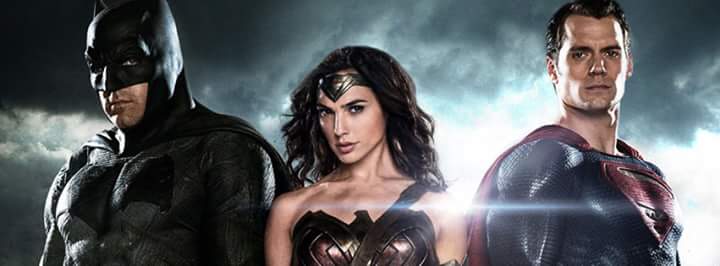
8. BvS jumps around, is too serious, doesnât follow Superhero Movie Rules, isnât predictable(?).
Austin Gunderson
I didnât feel that the story jumped around at all, with the exception of the Justice League setup scenes, which were a necessary annoyance. Other than that, it unfolded with a dark and considered grace from one movement to the next.
We begin with Batman, which is right because itâs the first time weâve seen him in the DCEU. We relive his past, and the events of MoS from his point of view. We establish Supesâ relationship with Lois and the fact that heâs being framed as a loose cannon all in one fell swoop. Then we go deeper into Bruce Wayneâs head, follow him in his pursuit of the mysterious crime syndicate that is Lexcorp, follow Lois in her pursuit of the same object from a different angle, introduce Luthor and follow him as he plays everyone like a string section, run Batman smack into Supesâ brick wall, frame Supes for the attack on the capital and out Luthor as the mastermind, deftly weave Diana Prince into the mix, convince Supes that itâs just not worth it anymore, ramp up Batmanâs paranoia, crystalize the ideological conflict between Luthor and Superman, bring Batmanâs coopted conflict with Supes to a head and then diffuse it, and then let loose with lots and lots of fighting: Bats vs goons; Supes vs Dooms; Bats vs Dooms; Wonders vs Dooms; Lois and Supes vs water; Supes, Bats, and Wonders vs Dooms; climax; denouement.
Not for one moment did I feel lost within the story, because there wasnât a moment in which the plot wasnât being driven by the characters involved. If that violates Superhero Movie Rules, then I hope those ârulesâ get tossed out on their ear. This genre is stagnant; it needs innovation and authenticity
E. Stephen Burnett
I spent a lot of time on this in my review at Christ and Pop Culture, so Iâll e-cycle:
Some viewers charge BvS with violations of superhero movie âlawâ: over-seriousness, failure to be âfun,â pretentiousness, bad religion, and the highest crime of being âdark.â
I want to appreciate these assumptions and respond with Nuance. But given the nature of disproportionate accusations against BvS, I also want to jab fingers and shout trap questions at prosecutors. I would start by demanding proof for our possible assumptions:
- Why may we assume a pretentious notion like âsuperhero stories are for childrenâ?
- Why may we assume an artificial sacred-vs.-secular sort of divide between superhero fantasy and serious things such as culture, literature, philosophy, politics, and theology?
- Why may we assume a barrier of laws between âdeep artistic films that wrestle with complex themes and unanswered questionsâ and âsuperhero movies that can be well-made, but must begin and end with Fun and never take anything too seriouslyâ?
These are discussions we must have and are having, in-depth and seriously, thanks to these DC stories. This alone ought to give some critics pause and ask if these stories have value.
[âŚ] Its storytellers ask us to try a new way. They propose a long-term investment in âmetahumanâ individuals who fight in a world that closely (perhaps uncomfortably so) resembles our own. Fun fantasy? Yes, but BvS aspires for greater intricacy. It pauses to explain. It delays action scenes for quiet character moments. It cares about slow buildup to awesome.
9. Personalized attack: Director Zack Snyder sucks, hates Superman, makes pretty images with no weight.
 Kerry Nietz
Kerry Nietz
Iâll admit, I was skeptical of Zack Snyder following MoS. There were portions of that movie I loved, portions I thought strange (âWhat? Pa Kent got killed by a random tornado?â), and portions that I initially didnât care for. The resolution of Zod, for instance. I thought that thread couldâve been as easily sewn up if theyâd all disappeared into the Phantom Zone again. (a la Superman II).
But, upon a second watching I realized there needed to be some climatic battle between Zod and Supes. Which means you have to have a winner, and if thereâs a winner, what happens to the loser? (Stephen and Austin have already discussed this at length.)
But I never thought the movie didnât have weight. In fact, unlike most superhero endeavorsâcomic books, especiallyâit was clear that someone put quite a bit of thought into theme and message. One may not agree with the theme, or how it was portrayed. But there is no arguing the movie has weight. Same goes for BvS. There are messages throughout. Iâm not sure the same could be said for all Marvel movies. What is the theme of Thor: The Dark World, for instance? Anyone? Iâm not even sure what the theme of Star Wars: The Force Awakens is. Second timeâs a charm?
I see no indication here that Zack hates Superman. I think he wants to make him as believable and relatable as possible. No easy feat. We could argue about the results, but the intent seems clear. Remember, this was David Goyerâs (Chris Nolan approved) direction for the Man of Steel before Zack became the director. If you want to blame someone, blame the writer.
Austin Gunderson
Iâd never seen a Snyder film before MoS â no, not even 300 â which gave me the advantage of going in without negative preconceptions. If anything, I was predisposed to dislike the film, not being a Superman fan myself. So I like to think I appraised it with a fairly open mind.
What I experienced in that theater â and what was then confirmed over the next several viewings â was what Iâd always wished a Superman film to be: high fantasy that treated its characters with deep respect and took their beliefs seriously. A beautiful work of art that poured out its heart to the viewer without resorting to sentimentality. A story with weight, with moral heft. A true epic.
I literally wept when Pa Kent held up his hand and was sucked away. I wept because I was there with the characters, fully inside their heads, and Iâd accepted that they really believed what they said they believed: that Supermanâs powers were real, and that the terrible consequences of their public display outweighed the life of one man. I didnât start ranting about how the characters couldâve just done something inconsistent with their beliefs in order to make their problems go away, because I knew thatâd have turned them into flakes and phonies, and I didnât want that. I wanted a story I could take seriously, and no story deserves to be taken seriously when itâs own characters reject its seriousness. MoS was the first superhero film Iâd seen with that level of emotional realism. And it ended up being a rather emotional experience for me.
So with that in mind, I honestly donât know what people are talking about when they write Snyder off as someone who makes films without weight. Iâve experienced the opposite: his films are much weightier than any of Marvelâs competition.
E. Stephen Burnett
Iâve also never seen any other Snyder films. I donât really care what previous movies this director made or whether they are favored by critics. And while every director has flaws, I frankly tire of critics or would-be critics who over-personalize their dislike for stories.
Movies in particular are made by thousands of people, and dozens (if not more) have input into a filmâs tone, themes, and story direction. Snyder seems a polarizing figure already, for reasons that donât even relate to MoS and BvS. People either rave about him or condemn him, and Iâm back here saying: This can become such a shallow way to condemn a story.
Yes, directors matter. At the same time: Are we certain the âcool factorâ is not in play here? I have in my mind Lewisâs warning about the kind of story criticism demons prefer:
And now for your blunders. On your own showing, you first of all allowed the patient to read a book he really enjoyed, because he enjoyed it and not in order to make clever remarks about it to his new friends.
Humans are frequently tempted not to enjoy stories for âpureâ enjoyment but because we want to âmake clever remarksâ about it to friends. This is not some conspiracy or motive-judgment. It is simply a recognition that people are people, and âpureâ enjoyment is hard.
Lewis also warns against criticism based on whether a work aligns with âprogressâ or the spirit of the age. Instead we ought to ask of a book (or movie): Does it show truth?
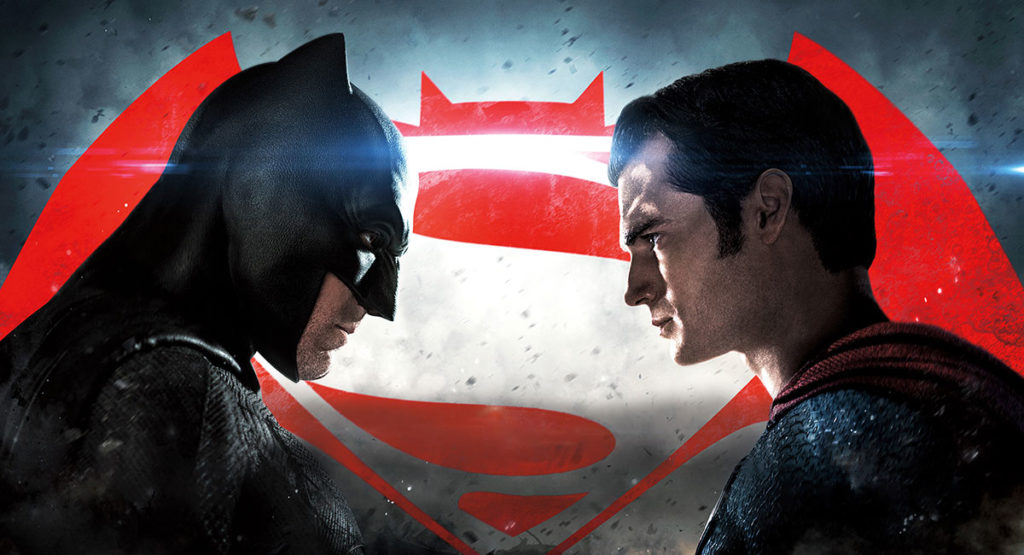
10. BvS has a stupid ending: bad resolution to the heroesâ fight, no fulfillment of themes, and doesnât finish the story.
Kerry Nietz
I donât think they intended to finish the story. In fact, there were tons of hints in the move to show the story wasnât finished: Lexâs raving statements at the end, the Flashâs visit from the future (Did you catch that one?), the Omega symbol in the desertâthe calling card of Darkseid. Yeah, thereâs plenty of story left here.
As to the ending, what could be more Heroâs Journey than that? Take a look at this list from the Heroâs Journey. How many of those steps did we see played out in Supermanâs narrative? Quite a few. Supermanâs journey in BvS is similar to that of Beowulfâs. Doomsday was his dragon. What remains to be seenâand possibly the reason some didnât find the ending satisfyingâis if weâre still hovering around step 11 in the Heroâs journey list. Iâm guessing we are.
Austin Gunderson
BvS ends as a good middle-installment should: with open-ended resolution. Doomsday is defeated, Luthor is imprisoned, Batmanâs faith in humanity has been restored, heâs teamed up with Wonder Woman to contact the other metahumans, Superman has finally, definitively, and tragically redeemed himself in the eyes of all humanity, and now thereâs something horrific on its way from the dark between the stars. Compare the ending of The Lord of the Rings: The Two Towers, at which point Saruman is defeated and Sauronâs just getting started. This is called âparceling out a seriesâ tension,â and itâs a mark of good storytelling. It simultaneously satisfies and draws you back for more. Star Wars Episode V: The Empire Strikes Back was much less generous than BvS in that regard.
There are numerous themes that are fulfilled and arcs that are completed by the end of BvS:
- Batman, realizing that Superman is in essence a man like him and not an alien god, resists the urge to perform a preemptive execution. In so choosing, he redeems himself both from Luthorâs manipulation and from the fatalistic cynicism thatâd threatened to consume him. He emerges a changed man, one for whom the future isnât devoid of hope.
- Superman, realizing thanks to the words of Pa Kent that human relationships are what tie us to this world more than anything else, rebounds from his bout with despair by choosing once for all to adopt Earth as his homeworld, and to hold nothing back in its defense. He admits his love for Lois, and, through her, for the rest of humanity, whether they appreciate it or not. And then he puts his body where his words are. He dives into danger knowing he could die, and then keeps pressing forward even when death is certain. He is brave as a man is brave. There, in that terrible moment, he earns the worldâs trust by the only means possible: his own death.
- Lex Luthor, in rejecting the possibility of good power, is left with nothing but power. And in seeking to acquire it for himself, he becomes the thrall of an evil far more powerful than he. Luthor begins the film as a rational, libertarian-minded steward of the public good, and he ends it a raving Lovecraftian cultist, having upended his fatherâs mural of angelic triumph. If this isnât an indictment of the spirit of our age, I donât know what is.
So yes, Iâd say that Batman v Superman is both deeply thematic and deeply moving. In fact, itâs kind of masterful in that regard.
E. Stephen Burnett
Great discussion. Iâll only say in closing that I am anticipating my second viewing of the film tomorrow, this time without the 3D (which ghosted a bit on our screen last Saturday).
Then I shall memorize the release dates for the next upcoming DCEU (DC Extended Universe) films, such as Suicide Squad (Aug. 5, 2016), Wonder Woman (June 23, 2017), and Justice League, part 1 (Nov. 17, 2017). Let us hope these films donât require âapologeticsâ roundtables! Yet I would enjoy discussing them again with you both and other fans.
Further up and further in âŚ
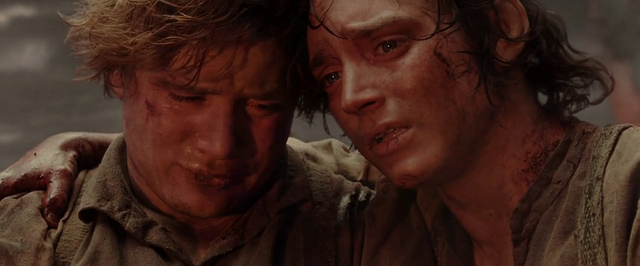



































 Four children find themselves in a strange world where itâs winter all the time and the animals invite them to tea. Sounds like a dream, until their brother is lured away by the Ice Queen. How will a lionâs sacrifice restore their family?
Four children find themselves in a strange world where itâs winter all the time and the animals invite them to tea. Sounds like a dream, until their brother is lured away by the Ice Queen. How will a lionâs sacrifice restore their family? Barbara Hartzler is the debut author of The Nexis Secret—the story of The Seer, a girl with a gift to see the unseen world of angels. And the two secret societies vying for her allegiance. The Nexis Secret is inspired by Barbaraâs college experiences and peppered with anecdotes from her teen missions trip to New York City. Sheâs always wanted to write, not necessarily about angels, but the idea was too good to pass up. As a former barista and graphic designer, she loves all things sparkly and purple and is always jonesing for a good cup of joe. So grab a cup of coffee and peruse her blog at www.barbarahartzler.com. Or look for Barbara on Twitter, Facebook, Pinterest, and Goodreads (another place to find great books!).
Barbara Hartzler is the debut author of The Nexis Secret—the story of The Seer, a girl with a gift to see the unseen world of angels. And the two secret societies vying for her allegiance. The Nexis Secret is inspired by Barbaraâs college experiences and peppered with anecdotes from her teen missions trip to New York City. Sheâs always wanted to write, not necessarily about angels, but the idea was too good to pass up. As a former barista and graphic designer, she loves all things sparkly and purple and is always jonesing for a good cup of joe. So grab a cup of coffee and peruse her blog at www.barbarahartzler.com. Or look for Barbara on Twitter, Facebook, Pinterest, and Goodreads (another place to find great books!).
 why should you? â Black-eyed Susans donât bloom until summer. And thus was a sale lost.
why should you? â Black-eyed Susans donât bloom until summer. And thus was a sale lost.

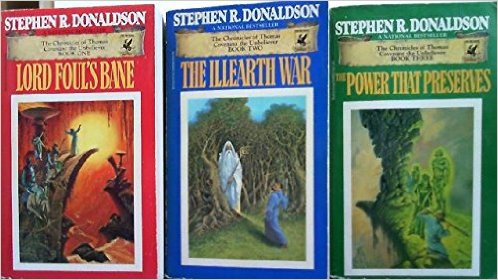
 What makes Christian science fiction and fantasy distinct from secular science fiction or fantasy? To put it another way, what is it secular science fiction or fantasy tries to accomplish, and what does Christian science fiction or fantasy do differently?
What makes Christian science fiction and fantasy distinct from secular science fiction or fantasy? To put it another way, what is it secular science fiction or fantasy tries to accomplish, and what does Christian science fiction or fantasy do differently?

 The love triangle. Let me guess, the first thing that comes to mind is an indecisive teenage girl toying with the emotions of two hunks who are too good for her anyway. Am I right?
The love triangle. Let me guess, the first thing that comes to mind is an indecisive teenage girl toying with the emotions of two hunks who are too good for her anyway. Am I right?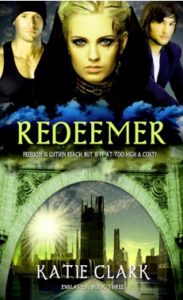
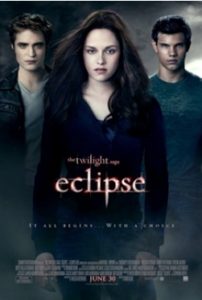

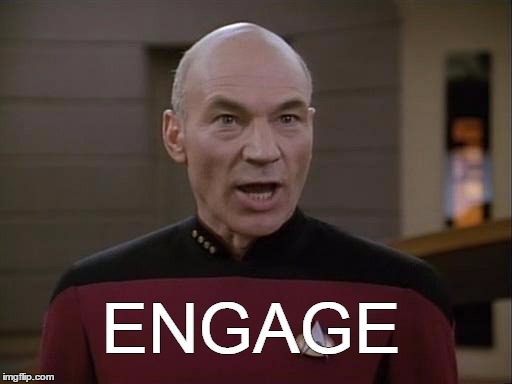
 The video is based on Zachary D. Totah’s Jan. 26 article
The video is based on Zachary D. Totah’s Jan. 26 article 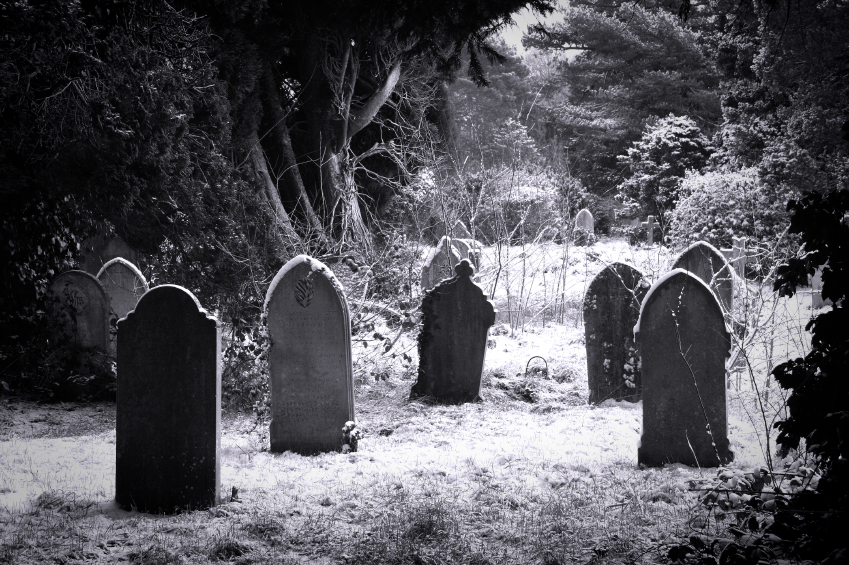

 Gothic. The idea of Gothic isnât paint-by-numbers or a recipe for the macabre. âGothicâ is a feeling, a vibe. A sense of gloom, of menace, of dread must hover over the proceedings, infusing every scene with a heaviness that is not explicitly mentioned in the story but is undeniable nevertheless.
Gothic. The idea of Gothic isnât paint-by-numbers or a recipe for the macabre. âGothicâ is a feeling, a vibe. A sense of gloom, of menace, of dread must hover over the proceedings, infusing every scene with a heaviness that is not explicitly mentioned in the story but is undeniable nevertheless.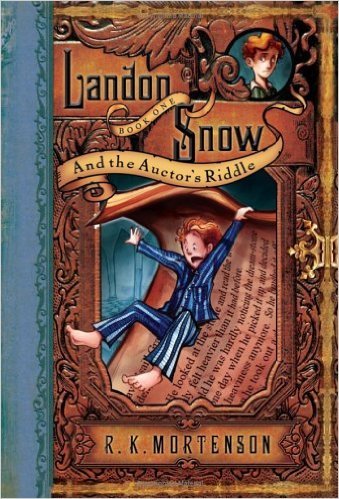
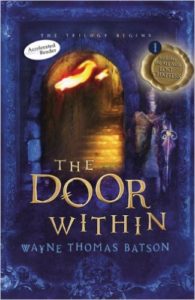 From time to time writers discuss their mode of coming up with names for their characters, and perhaps for places. Science fiction and fantasy writers, of course, have an entire world to name. How is it done?
From time to time writers discuss their mode of coming up with names for their characters, and perhaps for places. Science fiction and fantasy writers, of course, have an entire world to name. How is it done? 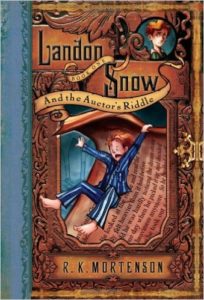 I know some writers like to play with words. If I remember correctly, I thought I detected word reversal in Karen Hancockâs Arena. I believe Randy Mortenson, author of the Landon Snow middle grade novels, borrowed from the Greek (or was it Latin? Hebrew? Aramaic? One of those!).
I know some writers like to play with words. If I remember correctly, I thought I detected word reversal in Karen Hancockâs Arena. I believe Randy Mortenson, author of the Landon Snow middle grade novels, borrowed from the Greek (or was it Latin? Hebrew? Aramaic? One of those!). 



 Kerry Nietz
Kerry Nietz



